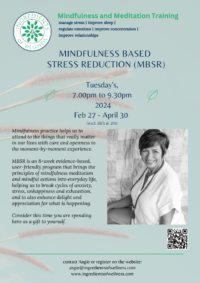Sugar – what’s the problem?
Sugar, it’s such a big topic these days. Actually when we talk about sugar in the context that I am going to discuss here and especially in regard to our wellness, I am referring to fructose.

I was recently interviewed by Holistic Health Coach Sandra Carvajal about the effects of quitting sugar, on her fabulous blog Latin2Yoga. Here it is in case you missed it. I used Sarah Wilson’s I Quit Sugar ebook as a guide to help me kick the ‘habit’. I talk more about that here, but in the meantime you can also link to her site by clicking on the link under we support.
What’s the up-to-date stuff on fructose…………….
Dr Lustig’s lecture Sugar: The Bitter Truth is suggested to have started the debate about the evils of fructose. It’s long, technical but a very interesting lecture. He suggests that fructose is the sweetener that our bodies crave and considers safe, and that would be ok if we were consuming only whole foods such as fruit. But now fructose is in everything in the form of High Fructose Corn Syrup (HFCS).
 Studies are finding a consistent relationship between fructose and chronic conditions including hypertension, heart disease, diabetes and other forms of metabolic syndrome. Duke University researchers have found that high consumption of fructose “..may contribute to the metabolic syndrome of insulin resistance and the complications of the metabolic syndrome, including liver injury”
Studies are finding a consistent relationship between fructose and chronic conditions including hypertension, heart disease, diabetes and other forms of metabolic syndrome. Duke University researchers have found that high consumption of fructose “..may contribute to the metabolic syndrome of insulin resistance and the complications of the metabolic syndrome, including liver injury”
One of the main problems is the consumption of calories – especially empty calories of no nutritional quality that results from processed foods containing HFCS. Dr Lustig suggests that because fructose doesn’t suppress the hunger hormone ghrelin or the leptin hormone which is responsible for letting the brain register that you are full, you keep consuming, and consuming, and consuming. So in effect a high sugar diet is also a high fat diet!
Sugar is also being studied for its association to the growth of cancerous tumors. Other research is considering the addictive effects of sugar. Researchers have suggested that fructose has similar effects on the brain as cocaine addiction. The results are of concern as they suggest that the higher and more frequent the intake of fructose, the less you feel the reward or the reward becomes more short-lived, so you crave more fructose.
Changes in guidelines
Just last week the National Health and Medical Research Council (NHMRC) of Australia issued new / updated dietary guidelines that included references to limiting added sugar intake . Guideline 3 recommends that Australians limit intake of foods containing saturated fat, added salt, added sugars and alcohol. Including the
intake of foods and drinks containing added sugars such as confectionary, sugar-sweetened soft drinks, cordials, fruit drinks, vitamin waters, energy and sports drinks
The ‘added sugar’ component is what Dr Lustig and his colleagues define as being:
any sweetner containing the molecule fructose that is added to food in processing
Basically, the recommendations are: eat plenty of whole vegetables and fruit, choose mostly unprocessed grains and cereals, cut back on salt, fat and sugar, and get more active.
Common sense really, but some say they won’t go far enough to help reduce the incidence of chronic and debilitating disease in Australia, whilst others including the sugar industry are sure to bring it down. Here is an interesting opinion piece on the potential tactics of the industry.
Now I’m not going to be drawn on the rights and wrongs here. I know what I want to do. I have read enough about the toxic effects of fructose to know that I will limit my intake to fruit (low in fructose, high in fibre), honey occasionally, and times when I can’t control it like eating out. But if you do want to know more about the apparent hoodwinking by the industry have a look at this interesting timeline from Mother Jones.
Other impacts
PS – I found this point by Dr Gary Sacks, Research Fellow at Deakin University, to be quite relevant to the overall debate about the impact of processed foods. Dr Sacks suggests that the NHMRC guidelines do not consider the environmental sustainability of the food supply chain, and goes on to say that
there is a clear link between over-consumption, environmental sustainability and obesity. Not only do highly-processed junk foods that are high in salt, sugar, fat and energy provide very little nutritional benefit, but valuable resources are used in their production, processing and distribution.
Did you find this useful in making decisions for your family? Share your thoughts.
Additional sources:
Lustig, R., Schmidt, L., & Brindis, C. (2012). The toxic truth about sugar. [Comment]. Nature, 482, 27-29.
60 Minutes 2012, Is sugar Toxic?, www.cbsnews.com/video/watch/?id=7403942n



